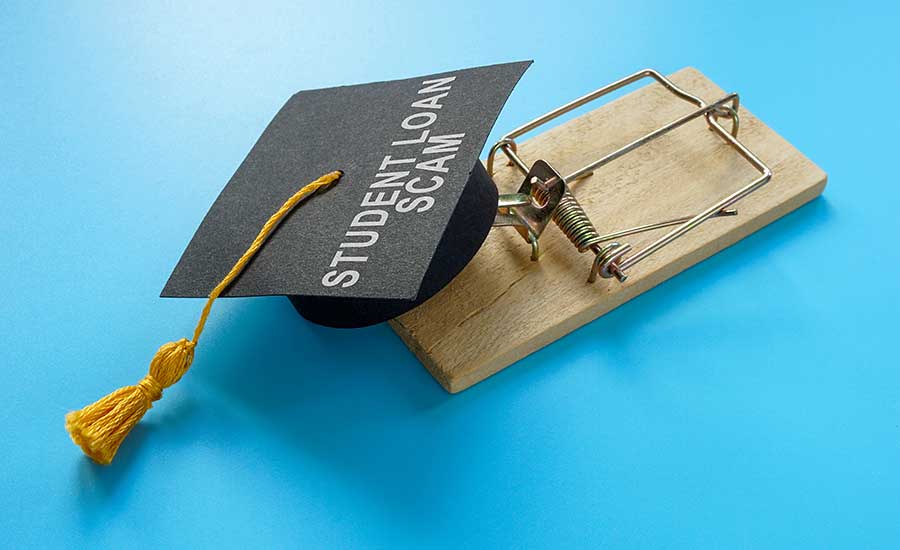COVID relief packages paused student loan payments for two years, but that could change soon. As people expect to begin payments again at the end of August, they’re looking to lower bills or find student loan forgiveness (meaning they don’t have to pay it back). Sadly, scammers are using that hope to steal their money.
How do these scams work?
It usually starts with a phone call, email, or text offering loan forgiveness, payment delays, or lower monthly bills. The scammer might request personal information, a power of attorney, or upfront fees to qualify you for these programs. Sometimes scammers even claim to be the Department of Education, notifying you about a limited-time opportunity.
Everything the scammers tell you is a lie. Here’s why:
1. Loan forgiveness and similar programs are very limited, so few people actually qualify. If you do qualify, it’s free. Also, private companies can’t qualify you. Only the government can qualify you.
2. You don’t need a power of attorney to qualify for loan forgiveness. Giving these permissions to a scammer lets them make financial decisions on your behalf – definitely not something you want to do.
3. Your loan servicer or the Department of Education won’t request personal information by phone, text, or email. Scammers, on the other hand, are after social security numbers, federal student aid IDs, and studentaid.gov login information.
4. The Department of Education won’t call you about loan forgiveness. They’ll send you a letter about it.
5. Government programs rarely have tight deadlines or limited-time offers (like “qualify within 24 hours”). Plus, the government won’t hunt down your information to tell you about loan forgiveness. You must seek out loan forgiveness information yourself.
If you’ve fallen victim to student loan forgiveness scammers, cancel any related payments and think about changing your banking information. You’ll also need to contact your loan servicer, change any relevant account login information, and revoke power of attorney privileges. Lastly, submit a report to the Federal Trade Commission.




